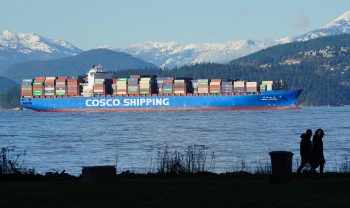Canada has long recognized the valuable contributions of temporary foreign workers to its economy. These skilled individuals fill critical labor market gaps and play a vital role in driving the country’s prosperity. However, these workers often face obstacles when it comes to pursuing educational opportunities that can further enhance their skills and open new doors for their future careers. In a groundbreaking move, the Canadian government has announced a temporary measure to remove the limitations on study programs for foreign workers, granting them the freedom to enroll in longer courses without requiring a separate study permit.
Expanded Opportunities for Foreign Workers:
The Honourable Sean Fraser, Minister of Immigration, Refugees, and Citizenship, unveiled this exciting new development aimed at empowering temporary foreign workers to seek additional training and education relevant to their professions. By allowing them to engage in longer study programs, the measure enables foreign workers to enhance their skills, broaden their job prospects, and increase their chances of transitioning to permanent residency. Previously, foreign workers were only permitted to pursue programs lasting six months or less while concurrently working. This restriction proved challenging for those seeking to improve their education, upskill, or validate their foreign credentials through specialized programs.
Key Highlights of the Policy:
The new temporary measure, effective immediately, offers a three-year window for foreign workers to study full-time or part-time while their work permits are valid, with no limitations on program duration. This breakthrough policy applies to individuals holding valid work permits or who have submitted work permit renewal applications on or before June 7, 2023, and are authorized to work. If a foreign worker intends to pursue studies longer than the duration of their work permit, they will still need to apply for a study permit separately.
Minister Fraser’s Statement:
Acknowledging the vital role temporary foreign workers play in Canada’s economy, Minister Fraser expressed the government’s commitment to enabling these individuals to achieve their career aspirations and dreams. This policy aims to eliminate barriers to skills development, creating opportunities for foreign-trained medical professionals to contribute to the healthcare system, facilitating the transition of construction laborers to tradespersons, and bolstering communities by building new homes. Minister Fraser emphasized that this immigration measure serves the interests of employers, workers, and the overall economy by addressing critical labor shortages.
Statistics and Projections:
Immigration is a key driver of labor force growth in Canada, accounting for nearly all of its expansion. Approximately 75% of population growth in Canada stems from immigration, primarily in the economic category. By 2036, immigrants are projected to represent up to 30% of the country’s population, a significant increase from 20.7% in 2011. These figures demonstrate the crucial role that immigrants, including temporary foreign workers, play in shaping Canada’s future.
Canada’s education system has also garnered international recognition, with recent rankings placing it in the top 10 globally for employability. This acknowledgment highlights the quality and value of education available to both domestic and international students in Canada.
Implications for Permanent Residence:
While work experience gained during full-time study does not count towards eligibility for the Canadian Experience Class, this temporary public policy opens doors for foreign nationals to enhance their prospects of receiving an invitation to apply for permanent residency through the Express Entry program. By pursuing further studies, individuals can increase their Comprehensive Ranking System (CRS) score. This can be achieved through a higher level of education, gaining qualifying work experience during part-time studies, improving language proficiency in French or English, or acquiring skills through higher-skilled employment resulting from enhanced education.
Looking Ahead:
Immigration, Refugees, and Citizenship Canada (IRCC) will evaluate the outcomes of this temporary public policy to inform potential future changes. The government remains committed to promoting the growth of its labor market and economy through inclusive immigration policies that recognize the value





